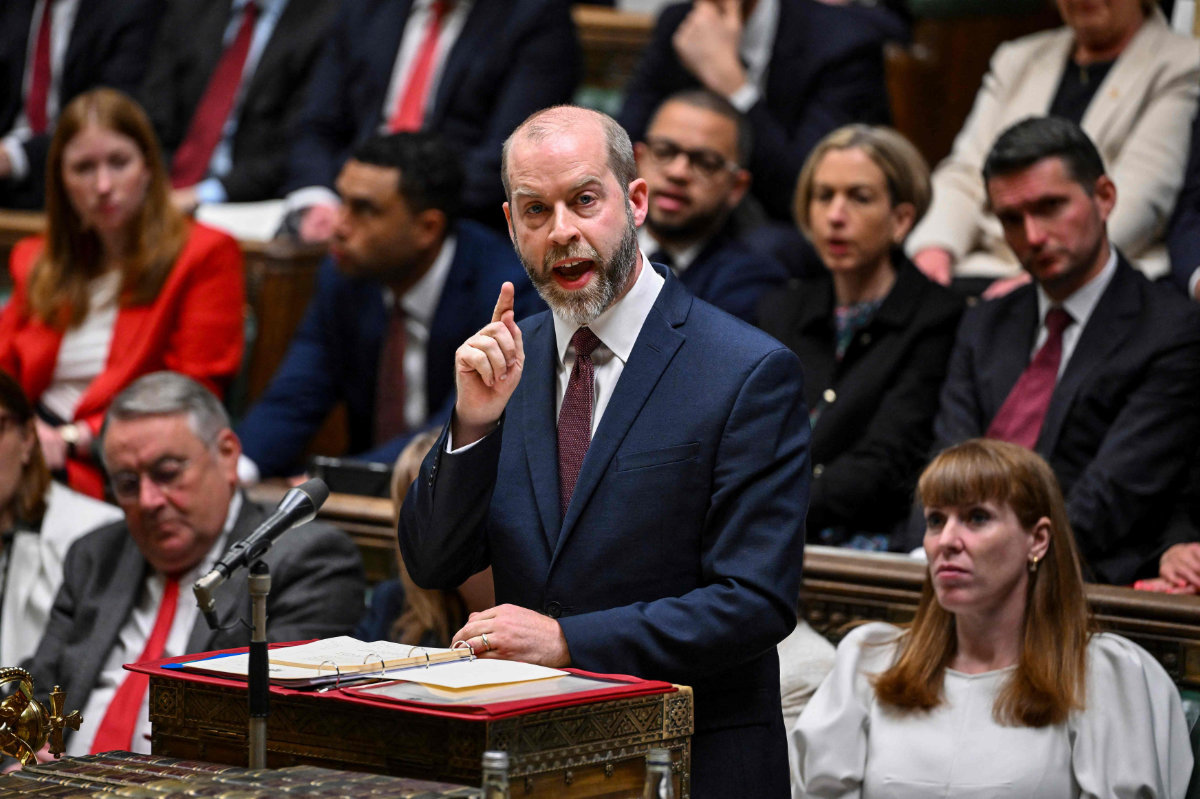MANILA: The Philippines has no intention of rejoining the International Criminal Court, President Ferdinand Marcos Jr. said on Monday, with the tribunal’s prosecutor planning to reopen a probe into the former president’s deadly anti-drug campaign.
Under the administration of Rodrigo Duterte, whose six-year rule ended on June 30, the Philippines officially withdrew from the ICC in 2019 after the court launched a preliminary probe into his controversial crackdown on drug suspects that international rights groups said involved systematic extrajudicial killings.
In September last year, ICC judges authorized prosecutor Karim Khan to investigate allegations of crimes carried out by authorities waging Duterte’s drug war, but Khan’s probe was suspended at Manila’s request two months later. The Philippines said it was looking into those alleged crimes itself.
Khan requested judges to authorize a resumption of his investigation earlier in June, saying that the deferral requested by the Philippine government “is not warranted” and that the probe should restart “as quickly as possible.”
Marcos Jr. last week held a meeting to discuss the government’s strategy in dealing with the ICC investigation.
“The Philippines has no intention of rejoining the ICC,” Marcos Jr. told reporters on Monday.
“There is already an investigation here and it’s ongoing,” he said, adding: “So why would there be a need for (the ICC probe)?”
According to official data, more than 6,200 Filipinos were killed in Duterte’s campaign, but the ICC estimated that the death toll could be as high as 30,000.
The former president had refused to cooperate during his time in office, saying that the court had no jurisdiction — an assertion rejected by the Philippine Supreme Court.
Marcos Jr., who had supported Duterte’s deadly crackdown, said the government might “just ignore” the investigation, and reiterated the previous leader’s statement that the ICC has “no jurisdiction” over the Philippines.
Carlos Conde, Asia division senior researcher at the New York-based Human Rights Watch, said Marcos’ statement was not unexpected.
“While this is obviously disappointing from a human rights perspective, this is not at all surprising,” Conde told Arab News.
In spite of where Marcos stands, however, Conde said it will not influence how the ICC would proceed with the investigation.
“With or without the cooperation of the Philippine government, the ICC prosecutors and the trial chambers have the resources to conduct their own investigation into the allegations of killings and other human rights abuses during Duterte’s time,” Conde said.
Filipino lawyer Edre Olalia, president of the National Union of People’s Lawyers, said the president’s move resembles that of his predecessor.
“This is exactly the same old refrain that was played by his predecessor and by the same old enablers. Stripped of the gibberish, does this mean (Marcos Jr.) is protecting his predecessor or is he protecting himself as well, or both?” Olalia said.
Marcos Jr. was elected president by a landslide in May, with Duterte’s daughter, Sara Duterte-Carpio, as his running mate. Duterte-Carpio also won the vice presidency, having won more than triple the votes of her closest rival. In the Philippines, the president and vice president are elected separately.
The ICC has invited the Philippines “to offer observations” on Khan’s request to resume the probe, and gave Manila until Sept. 8 to respond.





























